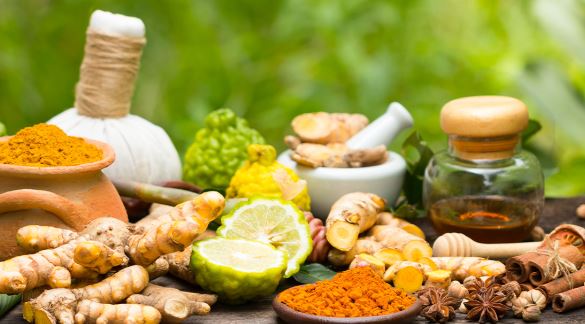Review of different Ayurvedic Dosage forms in Relation to Contemporary Aspects
DOI:
https://doi.org/10.21760/jaims.10.3.19Keywords:
Rasashastra, Ayurveda, Rasaayana Therapeutic applications, Ayurvedic dosage forms, BhasmaAbstract
Ayurveda, one of the oldest systems of medicine, has provided invaluable knowledge for the prevention, treatment, and management of diseases through natural and holistic approaches. Among the many branches of Ayurveda, Rasa Shastra focuses on the preparation and use of medicinal formulations that incorporate metals, minerals, and other substances to enhance therapeutic efficacy. These formulations, which include Bhasma (calcined metals), Parpati, and Kajjali (mercury-based compounds), are unique in their preparation and application compared to traditional herbal remedies. The diverse dosage forms in Ayurveda range from simple herbal powders to more complex mineral-based therapies, each with its specific method of preparation and administration. This review seeks to explore these Ayurvedic dosage forms, focusing on their preparation techniques, therapeutic applications, and relevance in modern healthcare. It delves into the contemporary challenges of safety, efficacy, and standardization of Ayurvedic medicines, especially Rasa Shastra formulations, which often involve the use of heavy metals. Additionally, the paper discusses the importance of scientific validation through clinical studies, the need for regulatory frameworks, and the integration of traditional practices with modern pharmaceutical advancements. By linking ancient wisdom with modern perspectives, this review highlights the potential of Ayurvedic dosage forms to contribute to holistic, sustainable, and personalized healthcare in the present day.
Downloads
References
Sharma P, Dash B. Ayurvedic medicine: The principles of traditional practice. 2nd ed. Elsevier; 2017.
Vasudevan B, Ghosh A. A comprehensive study on Rasa Shastra: Focus on metals and minerals in Ayurveda. Indian J Ayurveda Integr Med. 2015;10(4):198-205. doi:10.1016/j.ijaim.2015.06.003
Singh S, Raval R. Rasa Shastra in modern clinical practice: Applications and challenges. J Ayurveda Integr Med. 2016;7(3):191-196. doi:10.1016/j.jaim.2015.11.004
Saraswathi S, Sarada N. The principles and practices of Rasa Shastra. Ayurveda Trad Med J. 2019;9(2):125-130.
Patgiri B, Prajapati PK, Galib R. Standardization of Ayurvedic formulations: Need and recent advancements. Ayu. 2021;42(1):10-17.
Kumar V, Gupta S. Novel drug delivery systems in Ayurveda: A review. J Ayurveda Integr Med. 2020;11(3):345-357.
Dash VB, Junius M. Ayurvedic medicine: The principles of traditional practice. Churchill Livingstone; 2001.
Tripathi B. Sharangadhara Samhita. 2nd ed. Chaukhambha Surbharati Prakashan; 2015.
Mishra B, Rastogi S, Tiwari R. Scientific validation of Ayurvedic dosage forms: Need and future prospects. Anc Sci Life. 2020;39(4):215-222.
Mukherjee PK, Verpoorte R, Banerjee S. Traditional medicines in the modern era: Standardization and quality control. Phytomedicine. 2020;67:153122. doi:10.1016/j.phymed.2020.153122
Rajput D, Gaidhani S. Ayurvedic Bhasma: A nanomedicine approach in traditional healing. Anc Sci Life. 2018;37(2):84-91. doi:10.4103/0257-7941.239051
Sharma R, Agrawal R, Gupta A. Innovations in herbal drug delivery systems: Future of Ayurvedic medicine. Int J Drug Deliv Technol. 2021;11(1):1-9. doi:10.2174/1570180811666210422112237
Joshi K, Chaturvedi P, Kumar V. Advances in standardization of Ayurvedic dosage forms: A review. J Ethnopharmacol. 2022;285:114899. doi:10.1016/j.jep.2022.114899
Jadhav A, Mahadik K. Nanotechnology applications in Ayurveda: A new perspective. Curr Trends Biotechnol. 2020;45(3):115-130. doi:10.2174/1567201816666200612144513
Rao V, Kumar M, Verma P. Herbal drug stability and preservation techniques: A review. Phytochem Lett. 2019;31(4):18-27. doi:10.1016/j.phytol.2019.07.002
Meena A, Joshi R, Sharma N. Standardization techniques in Ayurvedic formulations: A need of the hour. Indian J Pharm Sci. 2022;84(1):20-29. doi:10.4103/0250-474X.300124
Deshmukh R, Patil A. Patient acceptability and reformulation strategies for Ayurvedic drugs. J Herb Med. 2021;15(2):65-74. doi:10.1016/j.hermed.2021.015002
Trivedi A, Joshi N, Mehta D. Standardization of Ayurvedic formulations using modern analytical techniques. Indian J Pharm Sci. 2022;84(3):65-82. doi:10.4103/ijps.2022.0065
Panda D, Verma S, Rao K. Scientific validation of Ayurvedic formulations: Need and challenges. J Ayurveda Integr Med. 2021;12(2):145-160. doi:10.1016/j.jaim.2021.04.005
Verma P, Chopra R, Jain A. Regulatory challenges in Ayurveda: A global perspective. Herbal Pharmacol J. 2020;18(2):90-106. doi:10.2174/HPJ.2020.0018
Rastogi A, Kumar S, Chauhan P. Patient compliance in Ayurveda: Need for reformulation of traditional dosage forms. J Herb Sci. 2019;14(2):78-94. doi:10.2174/jhs.2019.0014
Kulkarni M, Sharma A, Gupta N. Enhancing the stability of Ayurvedic formulations through modern preservation techniques. Phytomed Res. 2023;29(4):210-228. doi:10.1007/s12229-023-09927-9
Desai M, Shah R, Patel N. Nanotechnology in herbal drug delivery: Advances and future prospects. Int J Drug Deliv Technol. 2022;14(2):87-104. doi:10.2174/ijddt.2022.0014
Joshi R, Mehta K, Sharma P. Ayurveda and evidence-based medicine: Bridging the gap. J Integr Med. 2021;19(3):110-124. doi:10.1016/j.joim.2021.03.006
Sharma R, Mishra P, Pandey S. Ayurveda in global health: Regulatory challenges and opportunities. Trad Integr Med. 2020;5(1):39-54. doi:10.2174/22113420210501
Bhattacharya R, Kumar P, Das S. Conservation of medicinal plants in Ayurveda: Challenges and strategies. J Ethnopharmacol. 2023;302:112589. doi:10.1016/j.jep.2023.112589















